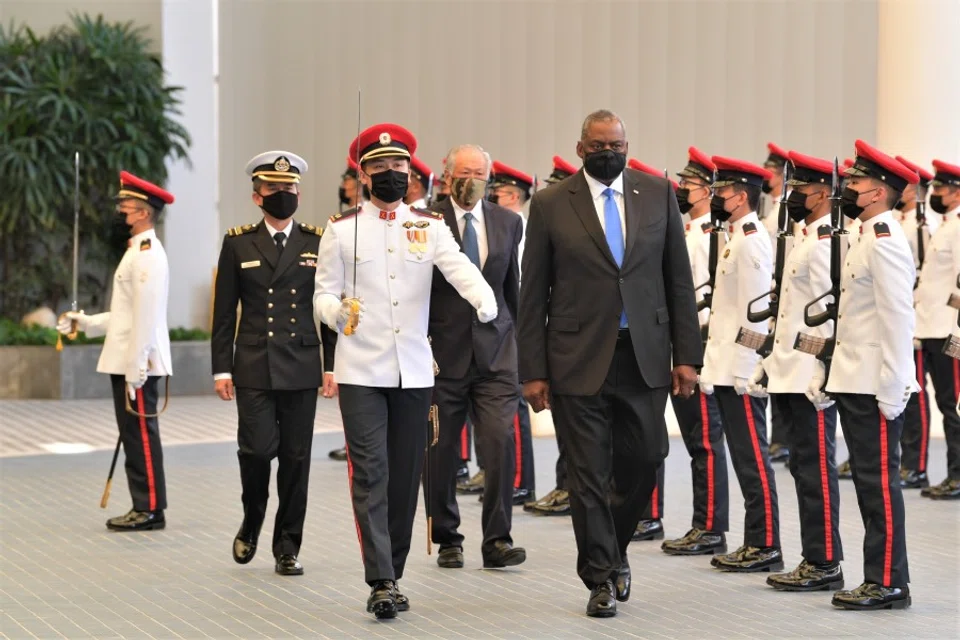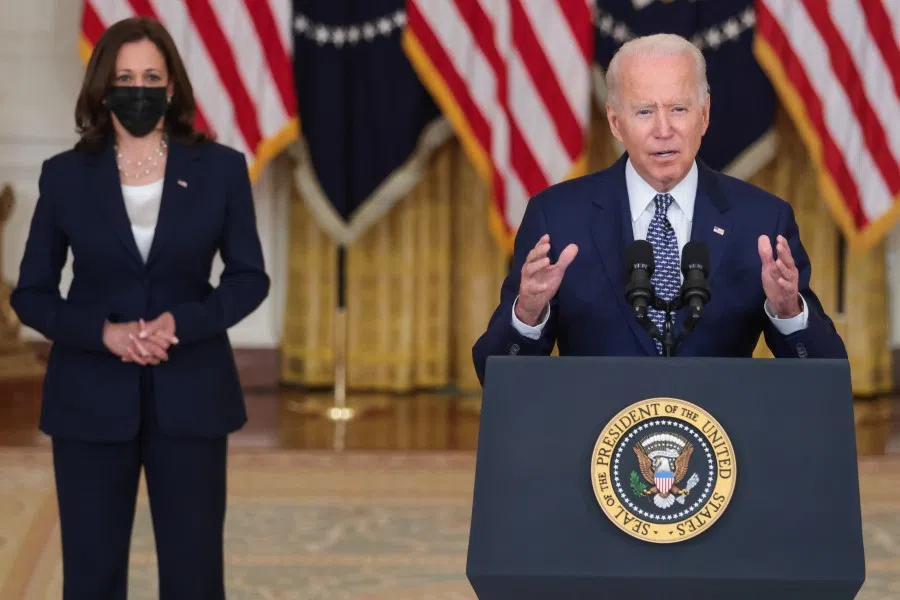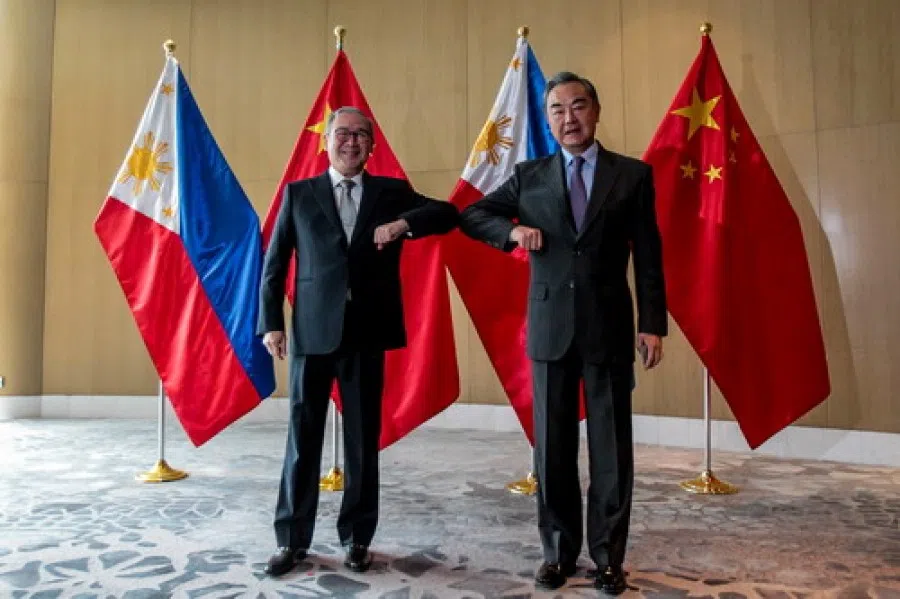A tall order: US policy effort in SEA amid rising Chinese influence
The Biden administration has reinvigorated its approach towards Southeast Asia. This, however, will be limited by important US priorities and Southeast Asian reluctance to irk Beijing.

Amid media criticism of the Biden government paying relatively scant attention to Southeast Asia and years of US losing ground to rising Chinese influence in the region, Washington is putting more skin in the game.
White House Indo-Pacific coordinator Kurt Campbell said in early July that the Biden government would "step up its game" in Southeast Asia. Defence Secretary Lloyd Austin became the first Biden administration Cabinet member to visit Southeast Asia in late July. Secretary of State Antony Blinken followed in early August with a week of back-to-back virtual meetings with ASEAN and regional counterparts highlighting important initiatives on providing Covid-19 vaccines and closer US engagement on economic recovery, climate change, and maritime security. To buttress the new effort, Vice-President Kamala Harris will visit Singapore and Vietnam in August to strengthen relations. Nevertheless, the effectiveness of US activism remains limited by more important US priorities and Southeast Asian reluctance to offend Beijing.
In his first 100 days at the White House, President Biden focused on domestic priorities: countering the pandemic, reviving the stalled economy, reducing partisan government gridlock and mass protests undermining democratic processes and protecting minority rights. Coming second, foreign policy involves close cooperation with allies and partners, seeking multilateral solutions on public health, climate change and nuclear non-proliferation, and assigning a higher priority to US interests in Asia.
President Biden came late in endorsing the dramatic negative turn in US policy toward China, now seen as fundamentally threatening US security and well-being. This was carried out by senior leaders of the Trump administration and bipartisan majorities in Congress. While on the campaign trail, candidate Biden tended to disparage China's ability to challenge US power. By early 2021, however, the president repeatedly warned against major dangers posed by China's challenges.

Biden's priority to counter Chinese expansionism in Asia repeatedly showed in his meetings with the other three members of the Quad grouping: Australia, India, and Japan. The efforts sought to improve on Trump administration actions that resulted in an overall decline in American influence.
The US's challenges in Southeast Asia
On the one hand, China seemed particularly ascendant in Southeast Asia. In contrast, Japan and India, as well as middle powers Australia, South Korea and Taiwan, faced China's increasing assertiveness, leading them to consolidate cooperation with the US.
The policy effort seeks to support US rivalry with China, yet take into account Southeast Asian countries' continued strong interests in positive engagement with China. In itself, this is a tall order.
In Southeast Asia, Biden officials faced important challenges. The seemingly abrupt change in US policy, from close engagement to strong rivalry with China, fundamentally impacted regional relationships in ways unwelcome by most Southeast Asian leaders. Many regional governments in recent years became more economically dependent on Chinese trade, investment, financing, and infrastructure. They strongly preferred to avoid having to choose between China and the US as rivalry between the two major powers seemed to require.
In some Southeast Asian states with authoritarian tendencies, Washington's eliciting of support from allies and partners by emphasising common interests in democracy and opposition to authoritarianism seemed counterproductive.
Neither the Biden nor Trump governments proposed multilateral trade arrangements attractive to the region to replace the aborted US-backed Trans Pacific Partnership (TPP). As a result, the US failed to offer a viable economic solution to Southeast Asian countries compared to China-backed trade pacts such as the Regional Comprehensive Economic Partnership.
Trump's sometimes cavalier treatment of allies and partners, US mishandling of the pandemic, and repeated mass demonstrations challenging basic governance reinforced regional perceptions of US unreliability and decline.
Compounding matters for the Biden administration, China has assiduously pursued its objectives through steady engagement and increasing interdependence with many Asian countries. But Biden officials are still in the process of creating a clear policy. The policy effort seeks to support US rivalry with China, yet take into account Southeast Asian countries' continued strong interests in positive engagement with China. In itself, this is a tall order.

China seems resolved in using a combination of blandishments and coercion in advancing control in regional affairs. Southeast Asian countries lean toward China or straddle the fence between the two superpowers. They are biased toward avoiding actions deemed offensive to China, in particular, because Beijing is much more likely than the US to punish such offensive actions with seriously impactful measures. In dealing with these countries, US policy may face a prolonged effort to support regional interests in the face of Chinese challenges with little expectation of substantial regional support for the US and its interests.
Working with Quad partners
As has happened with the US Quad partners and Taiwan, over the years, as fear of China's dominance looms larger in the calculations of regional states, they may over time become more inclined to move closer to the US. Such an uncertain long-term payoff may be hard to justify to impatient US policymakers and lead to frustration, undermining sustained US engagement in Southeast Asia.
Though the Quad remains controversial among Southeast Asian leaders, some countries in Southeast Asia (eg Vietnam, Indonesia. Singapore) might decide to associate with the Quad on a selective basis...
Under current circumstances, the US can try working with the three other Quad powers in pursuing rivalry with China for influence in Southeast Asia. Though the Quad remains controversial among Southeast Asian leaders, some countries in Southeast Asia (eg Vietnam, Indonesia. Singapore) might decide to associate with the Quad on a selective basis on issues such as regional economic development, improvements in public health, environmental concerns, good global governance and securing a stable strategic environment.
The three other Quad powers indirectly support US interests as they cooperate among themselves and with a variety of Southeast Asian states in promoting these states' security capacity and modern infrastructure. This would be deemed less sensitive to China than efforts directly involving the US; hence it would reduce the likelihood of Chinese retaliation against those involved.
In conclusion, while the new Biden administration initiatives seeking greater influence in Southeast Asia support expectations of rising US activism and rivalry with China in Southeast Asia during the Biden government, observers should also consider the constraints and disincentives discussed above, which overall suggest difficulties in sustaining US policy activism with Southeast Asian countries, risking US frustration, drift and continued decline.
This article was first published by ISEAS - Yusof Ishak Institute as a Fulcrum commentary.
Related: US defence chief Lloyd Austin in Southeast Asia: Did the US strike the right notes? | 'Mini' Shangri-La Dialogue: The US needs to provide tangible deliverables in Southeast Asia | Biden has not lived up his promises for Southeast Asia | Wang Yi's Southeast Asia tour: How China woos Southeast Asia in view of US-China competition | US and Southeast Asia need to cultivate common interests and understanding




